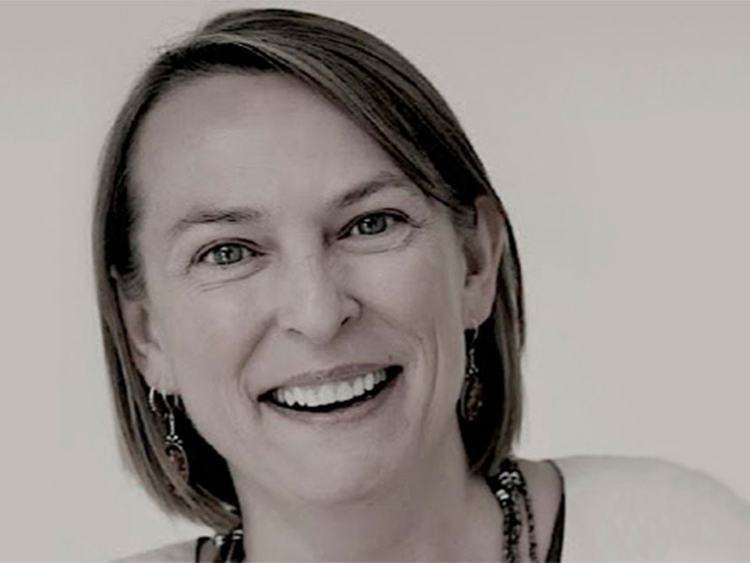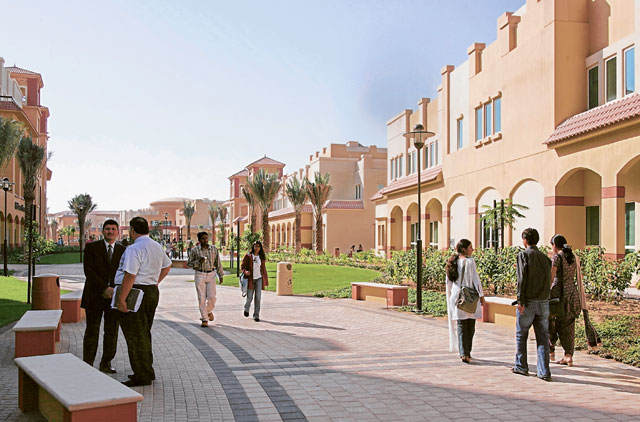
Dubai: Continuous innovation is the key to the wealth of nations. But how does it happen? And how do you keep it going?
Professor Elaine Fernley, Manchester Business School (MBS) MBA Programmes Director, shares her thoughts on the key drivers to taking great ideas forward. She was in Dubai recently to discuss a new research programme into creativity and innovation in the Gulf.
Her main research interest lies in technological innovation and change. MBS, which marks its 50th anniversary this year, supported the recent Dubai Week in China programme, highlighting Dubai’s status as a global city and a hub of the global economy.
Professor Elaine Fernley
The MBS Middle East Centre is now the fastest-growing centre in the MBS international network, with 1,800+ part-time MBA students in the region. Prof Fernley is also a member of the EPSRC Advisory Board for the UK Digital Economy.
Interview excerpts:
Q: What are your thoughts on Dubai’s aim to incubate innovation through the creation of themed industry clusters (Media City, Internet City, Silicon Oasis, Knowledge Village, Design District, etc). This model is being taken further with a new mandate for the “Dubai Creative Clusters Authority”, announced recently.
It’s amazing. If you think about how to generate or make innovation occur, one classic way is through “inter-disciplinarity”. It simply means bringing people from different backgrounds and expertise to work together.
When people from various backgrounds and disciplines work together, and make it part of an overall strategy, that gives weight to innovation, something significant can really happen.
Another classic way to encourage innovation is by making people become more self-aware, to discuss in an open and honest way their feelings, desires and personal strengths.
A fascinating way, which Dubai is doing at the moment, is by raising the level of ‘happiness’ amongst people. It's a great initiative.
In Manchester, we also have such creativity clusters -- for example, ‘Media City’, which is now the home of some of the operations of the BBC. We have a Cultural Quarter, equipped with a public library and where operas, theatrical shows are held -- it’s a hub for intercultural relationships to form.
What’s interesting is that we now have an initiative called Northern Powerhouse, a way to diversify our economy and bring expertise out of London to the north of England, with Manchester as the traditional cradle of innovation.
Q: In terms of character type, I thought creativity is the exclusive domain of the “squiggle” people, while business are the square or arrow types? How do you teach/enhance creativity and innovation among business people or leaders?
First, give people time and the right platform to engage, discourse in a comfortable, non-threatening environment.
Second, make it possible to have a general feeling of well-being and happiness. When combined, the evidence suggests that these two factors greatly improve productivity and creativity.
Awareness (of one’s personality type) is also important, and it means a person could consider alternatives and adopt them when appropriate. Every business leader should be prepared to listen to different views. In the classical sense, you should encourage people to engage in discourse and debate in an open way for the best ideas to come out.
The Dubai Knowledge Village, an education hub close to the Dubai Internet City and Media City
Innovation is about getting the best ideas out. In business schools today, we encourage people to look at other ‘non-like’, dissimilar businesses, when studying a particular business.
For example, retail - which is a business-to-consumer industry - could consider learning from the best practices in service-related industries or a business-to-business activity -- and vice-versa. There are always lessons to be learnt from other types of business through a comparative analysis.
Value of research
Q: What is the importance of research to business -- and business education?
We have been running a research programme on creativity and innovation at MBS, something we’ve recently started in six GCC countries. We’re conducting practical research into the drivers and barriers to creativity and innovation and doing the research here with inputs from the region.
We’ve engaged in in-depth focus group studies with government and commercial organisations to understand the GCC context and build a broader survey questionnaire for the research programme.
Q: Is UAE in the midst of a “Gold Age” of innovation?
I think we’re certainly looking at a “Golden Age” for innovation between Manchester and the Middle East. The Gulf has a very unique context today. We can all learn from what’s going on here. In the UAE’s Year of Innovation, numerous initiatives already bear the hallmarks of greater things to come -– in e-commerce, e-governance, e-healthcare and renewable energy.
Masdar, a world leader in renewable energy research based in Abu Dhabi, has invested £30 million in the Graphene Engineering Innovation Centre of Manchester University.
Two university researchers earned Nobel Prizes for this great innovation and Masdar is pushing it forward. MBS is also encouraging innovation in the UAE through the Manchester Innovation Award for Emiratis.
Q: What’s the link between research and teaching? Does business school research benefit when there is a link between a school and a university?
Teaching should be research informed; fundamentally, good teaching uses a research framework. You should teach people how to think critically and analytically, adapt the basic research skills.
Of course, there’s a huge advantage in talking to business students about new ideas and new products and taking them forward. Businesses move forward only when you have new products, new markets, new ways of doing things. A good relationship between a research-intensive university and a world-class business school is a key advantage.
Q: As a member of the EPSRC Advisory Board for the UK Digital Economy, what’s the mandate of the board? Where do you see yourselves in 5 or 10 years?
We decide where to invest money for research into the digital economy. The amount of money poured into research in digital economy is considerable -- both from the UK government and matched by private sector companies as well.
We’re talking about solar powered cities, intelligent transport, smart healthcare or health informatics – these are some of the key areas being looked into.
Q: What about online courses? In general, the MBA programme trend/demand is towards shorter and more personalised programmes. How is MBS addressing this?
We don’t compete against online courses. If you want to truly engage in critical debate and discourse and learn from your peers, you have to do that face to face under the direction of a highly experience facilitator, or a professor. And this is what we do at MBS.















